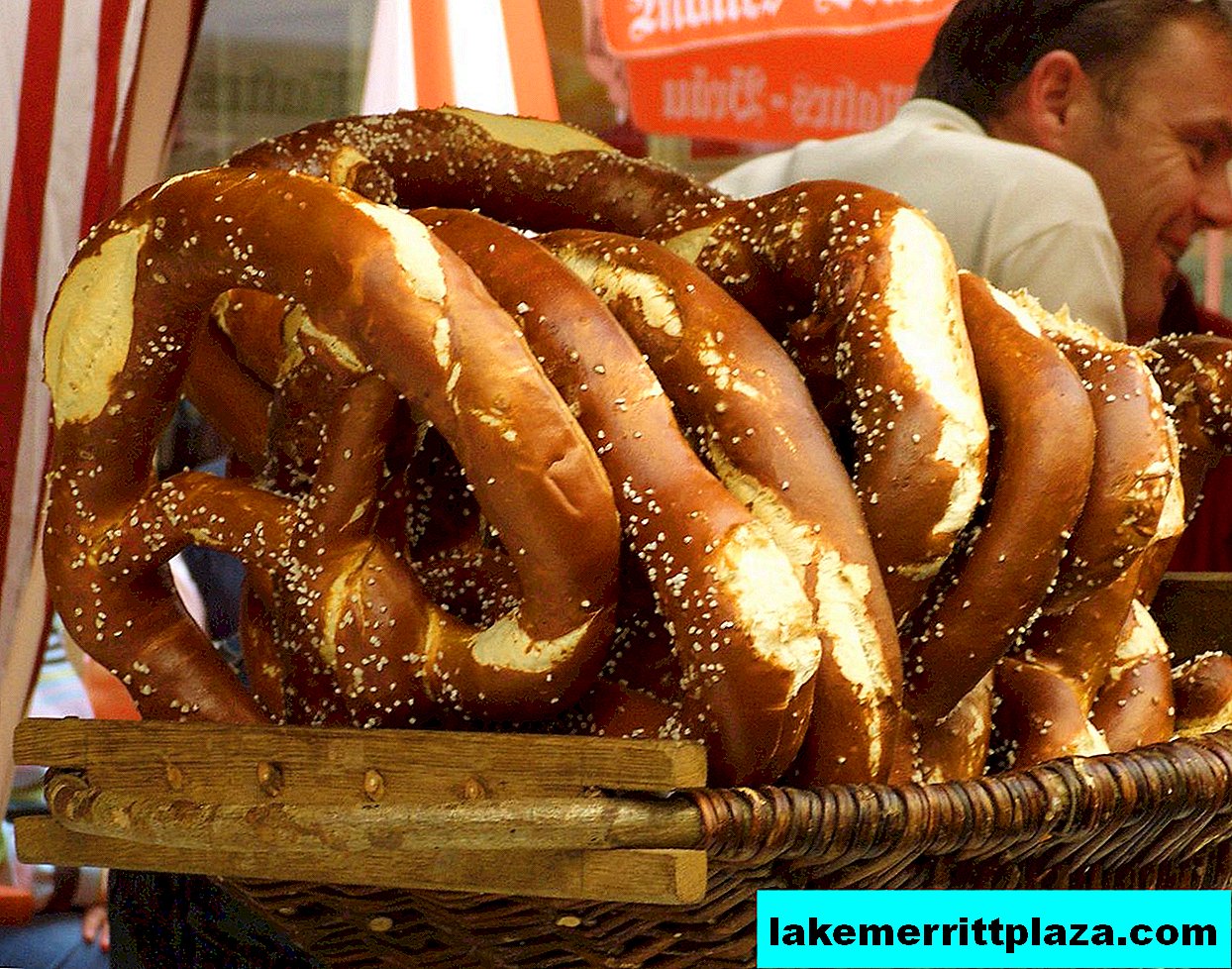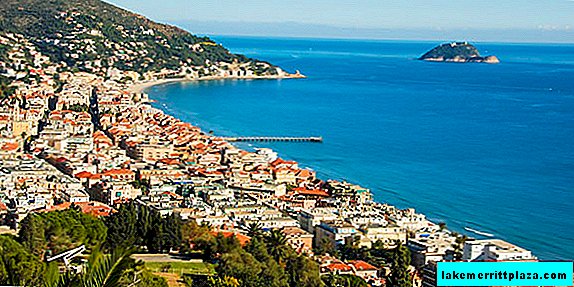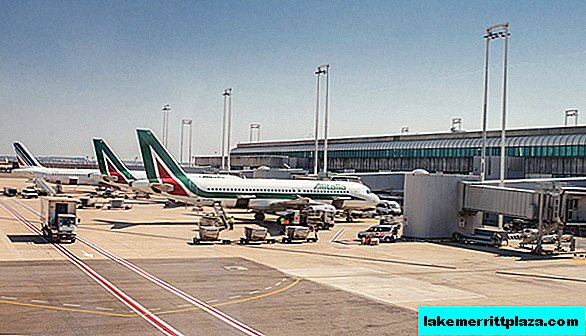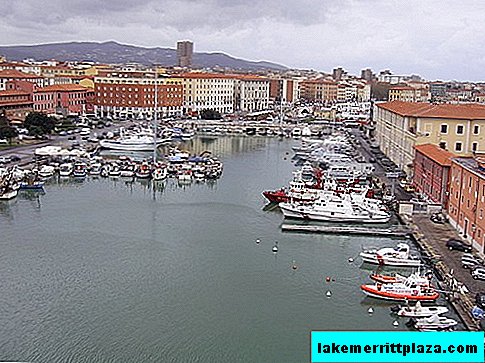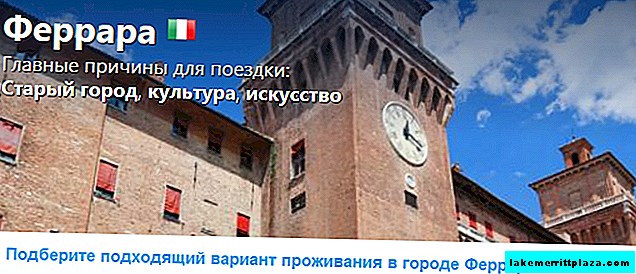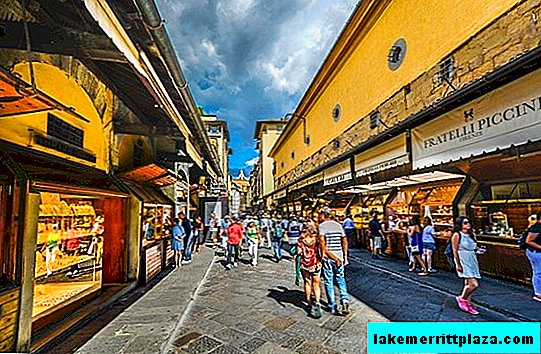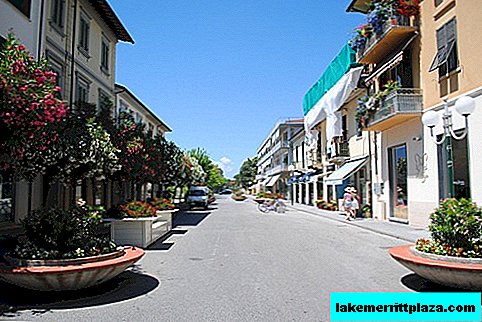Genoa is a wonderful and wonderful city. Here, history and modernity, sophistication and decadence coexist. Be sure, Genoa will win the heart of any traveler.

Streets of Genoa, photo enricorig
The magnificent Genova (Genova) is the capital of the Liguria region. It is located on the banks of the Genoese Bay.
Genoa became an independent communal city, began to conduct active trade in the Mediterranean Sea and take part in crusades. The Genoese Republic was formed.
Genoa has always claimed leadership - both in shipping, and in political power, and in the financial sphere. She was solemnly called "Magnificent" - La Superba. She constantly challenged her title with other great cities of the empire: Florence and Venice. For centuries, Genoa has been the mistress of half the Mediterranean. The wealth of its merchants and bankers was known throughout the world. Before the name of an independent city bowed even proud Venetian Doges.
But in the XIV-XVI centuries. the power of the republic began to decline. The reason was the war with Venice and the fact that the main trade routes of steel pass through the Atlantic Ocean.
It was in the independent and freedom-loving Genoa that ideas for the unification of Italian lands were born. The patriotic politician Giuseppe Mazzini was the first ideologist of the national movement. Now he rests in the famous cemetery of Staglieno.

Genoa, photo by Rolando CRINITI
Today, Genoa has developed shipbuilding and heavy industry. The city is part of the main industrial triangle of Italy, along with Turin and Milan, it is a scientific and tourist center.
Genoese - economical, enterprising, rational
The Italians are often ironic about the inhabitants of Genoa, calling them crooks and cunning, considering them greedy for money. Genoese do not deny their rationality and ability to find a way out of any situation. The land of Italy did not spoil this city: the territory of the historical center is strictly limited by the sea and the Apennine mountains. It was necessary to build houses on a narrow strip, they saved the land, did not arrange squares in the city, and public meetings were held in churches. Ferrari Square, which appeared in the XIX century, became a kind of sensation - the first urban recreational area. The townspeople got the opportunity to walk; the local secular public could leisurely rest at the fountain.
Genoa and Columbus

Monument to Christopher Columbus
It is believed that Columbus was born in Genoa, although there is no conclusive evidence of this fact. A number of Italian and Spanish cities claim the title of homeland of a great navigator. However, the Genoese are firmly convinced that Christopher Columbus is their countryman by origin, and their city belongs to the exclusive right to his image. Therefore, the name and image of Columbus is found here everywhere: in the names of entertainment venues and store signs, on labels and souvenirs.
There is also a monument to the seafarer (Monumento a Cristoforo Colombo) - he meets tourists on the station square Piazza Acquaverde. In addition to Columbus himself, the composition includes images of his exploits in the form of sculptures and high reliefs. At the feet of the great navigator, an Indian girl sits, the central panel depicts a council in Salamanca, where Columbus spoke, and a decision was made on the expediency of swimming.
Sights
 Aquarium of genoa
Aquarium of genoa
 Botanical Garden Biosphere
Botanical Garden Biosphere
 Galleon Neptune
Galleon Neptune
 Bigo panoramic elevator
Bigo panoramic elevator
 Galata Maritime Museum
Galata Maritime Museum
 Monument to Christopher Columbus
Monument to Christopher Columbus
 Cathedral of San Lorenzo
Cathedral of San Lorenzo
 Doge's Palace
Doge's Palace
 Garibaldi Street
Garibaldi Street
 Balbi Street
Balbi Street
 Ferrari Square
Ferrari Square
 Red Palace
Red Palace
 White Palace
White Palace
 Doria Tursi Palace
Doria Tursi Palace
 Royal Palace
Royal Palace
 University of Genoa
University of Genoa
 Basilica of Santissima Annunziata
Basilica of Santissima Annunziata
 Park of Walls and Forts
Park of Walls and Forts
 Cemetery of Staglieno
Cemetery of Staglieno
 Lantern Lighthouse
Lantern Lighthouse
Old Port

Old Port
It is best to start acquaintance with Genoa from the sea, from the Old Port (Marina Porto Antico). It is one of the largest ports in the Mediterranean. It was reconstructed according to the project of the ingenious Renzo Piano - architect-inventor, high-tech style philosopher born in this city. Among the Genoese creations of Piano you can spend the whole day - the port is considered a recognized entertainment center. Here you will see a huge aquarium and botanical garden "Biosphere", sheltered by a glass dome, a copy of an old pirate ship and Bigo observation lift.
Aquarium of genoa

Genoese aquarium
The long blue building of the Genoa Aquarium (Acquario di Genova), towering above the water, is the home of more than 5 thousand marine inhabitants. It is the second largest in Europe and includes 70 tanks with 6 million liters of water. A 100-meter “ship” is attached to it as an additional building, a journey along which will take visitors to the era of great discoveries and introduce you to the tropical forests of Madagascar.
Address: Ponte Spinola, 16128 Genova. Website: acquariodigenova.it.
Botanical Garden Biosphere

Biosphere
For the Botanical Garden, the Biosphere (Biosfera), according to the plan of the architect Renzo Piano, built a 20-meter glass ball, inside which the Amazon forests were reproduced. Among the plants are iguanas and chameleons, huge butterflies and cockatoo.
Address: Via al mare Fabrizio de Andrè, Ponte Spinola, 16128 Genova. Website: biosferagenova.it.
Galleon "Neptune"

Galleon "Neptune"
Galleon "Neptune" (Il Galeone Neptune) - three-masted frigate, a copy of the Spanish ship of the XVII century. It was built specifically for the film "Pirates" directed by Roman Polanski. Having bought a ticket, you can cover all its holds and guys, admire the wooden bas-reliefs, weapons and captive skeletons.
Address: Porto antico, 16124 Genova. Website: foto.genova.it.
Panoramic elevator "Bigo"

Bigo
Panoramic elevator "Bigo" (Bigo) - the creation of Renzo Piano. It resembles a spider, because consists of several arrows. A glass cabin will lift you to a height of 40 m and you can enjoy stunning views of the sea and the harbor.
Maritime Museum "Galata"

Maritime Museum "Galata"
Be sure to visit the Galata Museo del Mare Maritime Museum. This is the most important museum of Genoa; most of the expositions are dedicated to Columbus, his discoveries, the great history of the development of the Mediterranean by Genoese sailors.
But the most interesting exhibit of the museum stands near it - this is a submarine of the Italian Navy "Nazario Sauro". By boarding it, you will become more familiar with the design of modern submarines.
Address: Calata de Mari, 1, 16126 Genova. Website: galatamuseodelmare.it.
St. Lawrence Cathedral

San Lorenzo Cathedral, photo by Ruben Gonzalez Macias
Having paid tribute to the sights of Porto Antico, head to the Old Town. The historical center and to this day preserves the charm of a medieval city surrounded by a ring from the walls of the XIV century You will definitely come to the striped black and white marble facade of the Cathedral of San Lorenzo (Cattedrale di San Lorenzo). Inside it is also striped. The ancient Gothic temple holds many valuable Christian shrines: frescoes on the ceiling and walls, a sarcophagus with the relics of John the Baptist. It was consecrated in the XII century., And the domes and two belfries were completed only in the XVI century.
Address: Piazza San Lorenzo, 16123 Genova.
Ferrari Square

Piazza Ferrari
Ferrari Square (Piazza De Ferrari) is the "heart of Genoa." It is named after the banker, diplomat and philanthropist of the Duke Raffaele de Ferrari. In the square you will see the Doge's Palace, the Carlo Felice Theater, the Palace of the Ligurian Academy of Fine Arts, the equestrian monument of Giuseppe Garibaldi, the former building of the Stock Exchange. In the center of Piazza Ferrari, the elastic jets of the Agora fountain beat. Young people gather here, fans of local football teams are having heated debates. Having a rest at the fountain, you can go on a further journey.
Doge's Palace

Doge's Palace
Doge's Palace (Palazzo Ducale) - a huge complex of many buildings connected by courtyards, passages, galleries. The front facades overlook Piazza Mateotti and Piazza De Ferrari. The Doges lived here until 1797, until Napoleon came and abolished this post.
Today, the palace hosts exhibitions. Once here, look at the frescoes of Giuseppe Isola, the halls of the Big and Small Soviets, where the fate of the whole city, once decorated with statues and marble floors, was once decided.
Address: San Marco, 1, 30124 Venezia. Website: palazzoducale.genova.it.
Garibaldi Street

Palace of Doria-Tursi (Palazzo Doria-Tursi)
Not far from the Doge's Palace is the baroque pearl of Old Genoa - the area of Via Balbi and Via Garibaldi, built up of elegant palaces. Palazzi dei Rolli is the palace quarter of the Genoese nobility, built in the 16th-17th centuries, on the streets of Garibaldi and Balbi. More than 40 of them were erected in a rather narrow section, so the owners had to build the structures up. The palaces were intended to accommodate royal persons, dignitaries, foreign delegations. Some of these buildings are listed on the UNESCO Register.

White Palace (Palazzo Bianco)
Giuseppe Garibaldi Street was formerly called Strada Maggiore, and then Strada Nuova. This is a small cobbled street with many souvenir shops, street musicians and ancient palaces. It is also called the "street of palaces".

Red Palace (Palazzo Rosso)
The main attractions, the palaces of Bianco, Rosso and Tursi, now make up the complex of museums of Strada Nuova (Musei di Strada Nuova), which contains works of Baroque painting and other art objects. In Turzi's palace is the hall of Paganini, another great Genoese, with a collection of personal items and the violin "Canon".
Balbi Street

Royal Palace
Balbi Street appeared in the 17th century as a personal project of the banker Stefano Balbi. Here was built the Balbi Palace, the future Royal Palace (Palazzo Reale), where kings and princes of the genus of Savoy lived for a century. Another Balbi palace, but with the prefix Senarego, was a Jesuit monastery. Now it is the University of Genoa (Università degli Studi di Genova). On the street you will find a laundry of the 17th century, a washing of St. Brigitte.

Basilica of Santissima Annunziata
Do not miss the Basilica of Santissima Annunziata (Basilica della Santissima Annunziata del Vastato), the construction of which began in the XVI century. in the gothic style. The modern neoclassical facade was built in the 19th century. In the church you will see frescoes and wonderful architectural decoration, sculptures and paintings by famous masters of the Baroque and late mannerism.
City walls

Fortress walls
Now you can climb the hills with their intricate serpentines of roads, with old houses closely stuck together, and the remains of the mighty fortifications of the fortress walls. Today the city wall (Mura di Genova) is divided into large fragments. The longest section is called "New Walls" (Mura Nuove) (XII century.), It surrounds the historic city center, enveloping the ridges of the hills.
In the vicinity of the train station and Sardzano hill are more modest fragments. Not far from Piazza Ferrari are the ancient gates of Sopran, and at the entrance to the Old Port - the gates of Vacca.

Park of Walls and Forts
Visit the large natural city park of the Walls and Forts (Parco Urbano delle Mura e i Forti), which was opened in the 20th century. in the New Walls area, near the forts. Over 900 species of plants grow there and many animals and birds live.
Cemetery of Staglieno

Cemetery of Staglieno
The monumental cemetery of Staglieno (Cimitero monumentale di Staglieno) looks like an open-air sculpture museum. It is an amphitheater descending along the hillsides. It has its own Pantheon, with a "Greek" portico, two images of saints and a statue of Vera.
Address: Piazzale Resasco, 16100 Genova. Website: staglieno.comune.genova.it.
Lantern Lighthouse

Lanterna, photo by lr.photo
After descending from the hills, go to the main symbol of Genoa - the 117-meter lighthouse of La Lanterna. This is a wonderful observation deck, museum, a visiting card of the city. Standing next to it, you can plan a further route. Do you take a trip along the Ligurian coast and visit the elite tourist Portofino, or admire the unique picturesque villages of the Cinque Terre?
Or maybe you are tired of studying the historical heritage, and you just want to go to the nearest beach?
Beaches of Genoa

Beaches of Genoa
Albaro
Albaro Beach (spiaggia Albaro), located in the center of Genoa, is considered by citizens and tourists as a good option for relaxing and swimming - it’s good to get close. The sea is pretty clean, there are plenty of places to eat.
Arenzano
Well, if the beach crowded Albarro annoys you, and the abundance of languid beauties in bold swimsuits also does not please you, choose a quiet romantic corner. In half an hour you can take the train to Arenzano, where there is a pebble beach with clear water, secluded lagoons and quiet backwaters, ideal for fishing. Here you can swim, enjoy water sports, fish for dinner and just relax in silence, away from the hustle and bustle of the tourist of lively Genoa.
Genoa public transport

Cog Railway in Genoa
At your disposal are buses, subways, trolleybuses, funiculars, a cog railway and taxis, and elevators from the low part of the city.
Fare
Biglietto ordinario: 100 min basic trip ticket costs € 1.50;
Biglietto integrato: integrated (electric trains are added) for 100 min. - € 1,60; the ticket will cost the driver - € 2.50;
Carnet da 10 biglietti integrati: booklet of 10 integrated tickets - € 15;
Genovapass: ticket with no travel restrictions for 24 hours - € 4.50;
5 tickets for 24 hours - € 18.
The ride on a lift costs € 0.8.
Buy public transport tickets at tobacco kiosks or at ticket machines at bus stops. See current prices here.
Taxis are a comfortable form of transport. But do not forget to ask the driver before boarding the fare. The average cost of a trip for a distance of 2-3 km - from € 8 plus surcharges for toll roads, a night call or on holiday, leaving the city.
Card musei di genova
If you purchase a combined tourist card (Card Musei di Genova), then in addition to unlimited travel by transport, you will receive the right to free access to 22 museums and a 10-30% discount in cafes, exhibitions and attractions.
Card Musei di Genova for 24 hours costs € 13.50; for 48 hours - € 20.
How do I save on hotels?
Everything is very simple - look not only at the booking. I prefer the search engine RoomGuru. He is looking for discounts at the same time on Booking and on 70 other booking sites.

